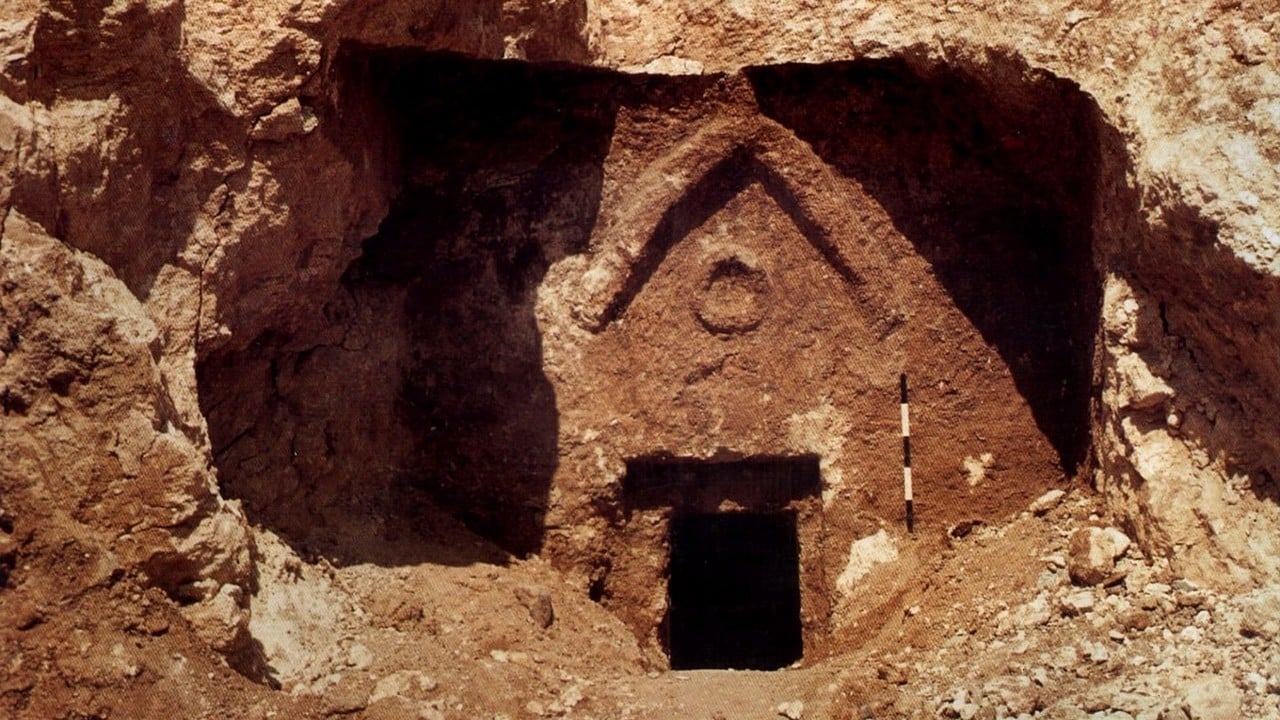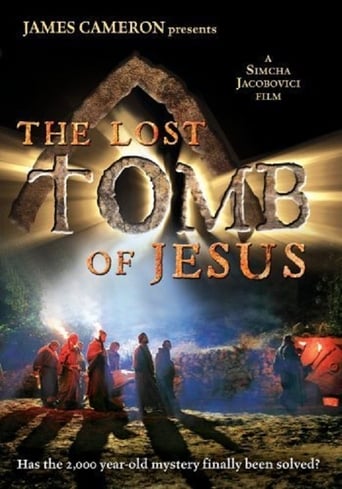



One of the wrost movies I have ever seen
It is not only a funny movie, but it allows a great amount of joy for anyone who watches it.
View MoreThe best films of this genre always show a path and provide a takeaway for being a better person.
View MoreExcellent and certainly provocative... If nothing else, the film is a real conversation starter.
View MoreLost Tomb of Jesus, The (2007) *** 1/2 (out of 4) This controversial documentary claims that a buried family tomb that was discovered in Jerusalem is in fact the tomb of Jesus and his relatives. That's pretty much all you have to say to start up a heated debate among people who either don't want to believe this is the tomb fearing that it could cause people to question their faith or the other side wanting to use it as proof that there entire faith is false. Look, I grew up in a church as my grandfather was a preacher and I've heard from countless different religions in my lifetime. At the same time I tend to look at myself as rather open-minded so I can accept science, technology and new findings. I'm not going to sit here and take a side in this heated debate because I'm not an expert on any of the subjects covered here. I'm also not one that's going to get offended by anyone's point of view even if it goes against mine. What I can say about THE LOST TOMB OF Jesus is that it's a very entertaining documentary that kept me glued to my seat as the story was unfolding up to its conclusion. I think the film works well as a "film" because they tell the story in such a way that you really feel as if you're watching some mystery or adventure film unfold. The movie manages to contain some nice drama and especially towards the end when the main goal is trying to figure out where the lost tombs are and to see if they can dig up any more evidence. Again, depending on your point of view you might not like what they discover or you might even agree with it but feel that there weren't enough experts giving the testimony. Whatever way you see it, the film at least manages to be very entertaining, which was the most important thing for me.
View MoreThis film is very interesting, but loads of big questions are not addressed, and I agree more work should be done. 1) Why was so little effort made to investigate this find fully? 2) Why were dna tests not done on the 'James' ossuary, the 'Mary' ossuary, the ' Joses ' ossuary, and the 'Judah' ossuary? Surely these would have been hugely relevant? 3) Thestatistical analysis of the cluster of names was nearly non-existent, just a couple of comments really. This is unforgivable, as the names are the essence of the story. Any school student could present a better analysis. Did the filmmaker 'dumb it down' for the American market? Just the combination 'Jesus son of Joseph' together with 'Mary' are hugely significant, even without the questionable 'Mary Magdalene' inscription. You have to bear in mind the small size of the population at that time, and the lack of transport for human bodies, and the laws regarding quick burial. If the mdna had linked Jesus and Mary, this combination of related names would have been extremely rare and significant. If the James mdna was the same, this combination would be statistically extremely convincing. Another point completely missed is that, even if you accept the second interpretation of the 'Mary Magdelene' inscription, ( ie two women, Mariamene and Mara in the same box), these names are significant, as , buried in the same box, they are highly likely to be mother and daughter, and a Mariamene with a daughter Mara points very strongly to Mary Magdalene, because she was known as Mariamene, who is Mara, and these were rarely used names. Like many religious documentaries, this film is both interesting and frustrating at the same time.====== ====== ======= ======= ======== ======== ========= ======= Having had a second look at this, I think I can answer one of my questions. I was originally amazed at how little priority was given to this investigation at the time. ( Bearing in mind that more than 2000 million people base their religious beliefs on this man ) . But in retrospect, you have to ask, who would want this find to be confirmed as the real remains of Jesus and family? Not the Israeli government, it would have the potential to stir up hatred in the Christian world. And not the Christian establishment, they would be facing having their position and faith undermined. So the best thing for both parties would be to keep it fairly quiet, and that is what seems to have happened.
View MoreThe theatrics and the drama included in the movie is fantastic, but the facts and the research is far from solid. When quoting Dr. Bovon, where the documentary tries to establish a connection to Mary Magdalene from Mariamene, Dr. Bovon later clarifies it should be used for literary purposes (ie: fables of that time) not for a historical figure. In fact he states, he does NOT believe the Mariamene ossuary in Talpiot is Mary Magdalene. He further comments on his public letter, that he was not informed that his words would be used for this documentary but rather for information regarding Acts of Philip (a literary work in the 4th century).So what we have here is a director that took one clip for a 4th century Acts of Philip fantasy and used it specifically to support a 1st century ossuary inscription. A very sad stretch and Dr. Bovon calls the Jesus/Mary Magdalene connection as "science fiction" -- as this documentary should be rightly labeled.
View MoreAs pointed out by the academicians in the ensuing discussion hosted by Ted Koppel, a heavy hitter when it comes to journalism, "The Lost Tomb of Jesus" is in desperate need of more scholarship. That said, I found it a compelling and interesting documentary, slightly better than the Discovery Channel's average delving into historical and archaeological topics. I do also disagree with one of the guest academicians who said that the documentary was "archaeological porn", almost hinting that since he was not involved in the project that it had no merit. The documentary I think certainly has merit. They did use a Harvard professor to translate inscriptions on the ossuaries and a statistician from the University of Toronto to speculate on the likelihood of the tomb being that of the family of Jesus of Nazareth.The documentary's obvious weakness is in its lack of scholarly commentary. The few academicians used in the documentary were not involved in any kind of analysis of the archaeological finds. They were primarily used more for the expertise in their respective fields. So the question is what scholarly commentary was lacking? A good comparison is the Frontline documentary "From Jesus to Christ". In "Jesus to Christ" about ten scholars representing renowned research institutions from around the country were used to tell the story of what is regarded as factual about the life of Jesus and his early followers. In "Tomb" the filmmakers were essentially their own commentators. Another difference between the two documentaries was the amount of time devoted to scholarship. "Jesus to Christ" was a 4-hour documentary in 3 parts with 60% or more of its screen time devoted to scholarly commentary. "Tomb" was probably closer to 1 1/2 hours when consideration is given to commercial breaks with very little scholarly analysis. A lot of "Tomb"'s time was devoted to re-enactment scenes and scenes devoted to the logistics of getting under a 25-year-old apartment complex. These two elements I found less interesting.The film almost begs for a sequel. Scholars and other academicians who understand the implications of archaeological finds need to analyze and critique the artifacts of the documentary. Not all scholars will ever agree about the implications. The filmmakers last point in the ensuing discussion was probably the most important: that he hoped that the film would lead to more discussion and scholarship.
View More